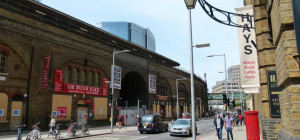 Spain is renowned for its lively culture, delicious food, and stunning landscapes. It’s no surprise that it has also become a popular destination for the LGBTQ+ community due to its progressive attitudes towards sexuality and gender identity. In this article, we will explore the gay life in Spain and how it has evolved over the years.
Spain is renowned for its lively culture, delicious food, and stunning landscapes. It’s no surprise that it has also become a popular destination for the LGBTQ+ community due to its progressive attitudes towards sexuality and gender identity. In this article, we will explore the gay life in Spain and how it has evolved over the years.
Spain has been at the forefront of LGBTQ+ rights for decades. In 2005, it became the third country in the world to legalize same-sex marriage, and since then, it has consistently been ranked as one of the most LGBTQ+ friendly countries in the world. The country’s liberal attitude towards sexuality is not just limited to the law but is also evident in society’s acceptance of LGBTQ+ people.
Madrid, the capital city, is known for its vibrant gay scene. The Chueca neighborhood, located in the city center, is considered the heart of the gay community. The area is filled with trendy bars, clubs, and restaurants, making it a popular spot for locals and tourists alike. The annual Madrid Pride celebration, known as Orgullo, is one of the largest in the world, attracting millions of people from all over the globe.
Barcelona, another popular destination for tourists, has a thriving gay scene as well. The Gaixample neighborhood is the city’s gay district and is home to several gay bars, clubs, and saunas. The Barcelona Pride celebration is also a major event, drawing thousands of people to the streets to celebrate diversity and inclusion.
The Spanish island of Ibiza has long been a popular destination for party-goers and is increasingly becoming a hotspot for the LGBTQ+ community. The island’s annual Ibiza Gay Pride is a fun-filled, week-long celebration of love and diversity, featuring parties, parades, and performances.
But it’s not just the big cities and tourist destinations that are welcoming to the LGBTQ+ community. Spain’s smaller towns and villages are often just as accepting. In fact, many gay people choose to move away from the big cities to enjoy a quieter life in the countryside.
Spain’s liberal attitudes towards sexuality also extend to education. The country has a comprehensive sex education curriculum, which includes information about LGBTQ+ issues. This ensures that young people are educated about different sexual orientations and gender identities, reducing the likelihood of discrimination and prejudice.
Despite Spain’s progressive attitudes towards sexuality, there are still challenges that the LGBTQ+ community faces. Homophobic and transphobic hate crimes do occur, although they are relatively rare compared to other countries. Discrimination in the workplace and in accessing healthcare is also a concern, although efforts are being made to address these issues.
The transgender community, in particular, faces unique challenges. Spain has made significant progress in recognizing the rights of transgender individuals, with legislation allowing legal gender changes without medical intervention. However, there is still a lack of understanding and acceptance of transgender people in some parts of society.
Overall, Spain is a welcoming and inclusive country for the LGBTQ+ community. Its progressive attitudes towards sexuality and gender identity have made it a popular destination for gay travelers and a comfortable place for LGBTQ+ people to call home. While there are still challenges to overcome, Spain’s commitment to equality and inclusion is a shining example to the rest of the world.







